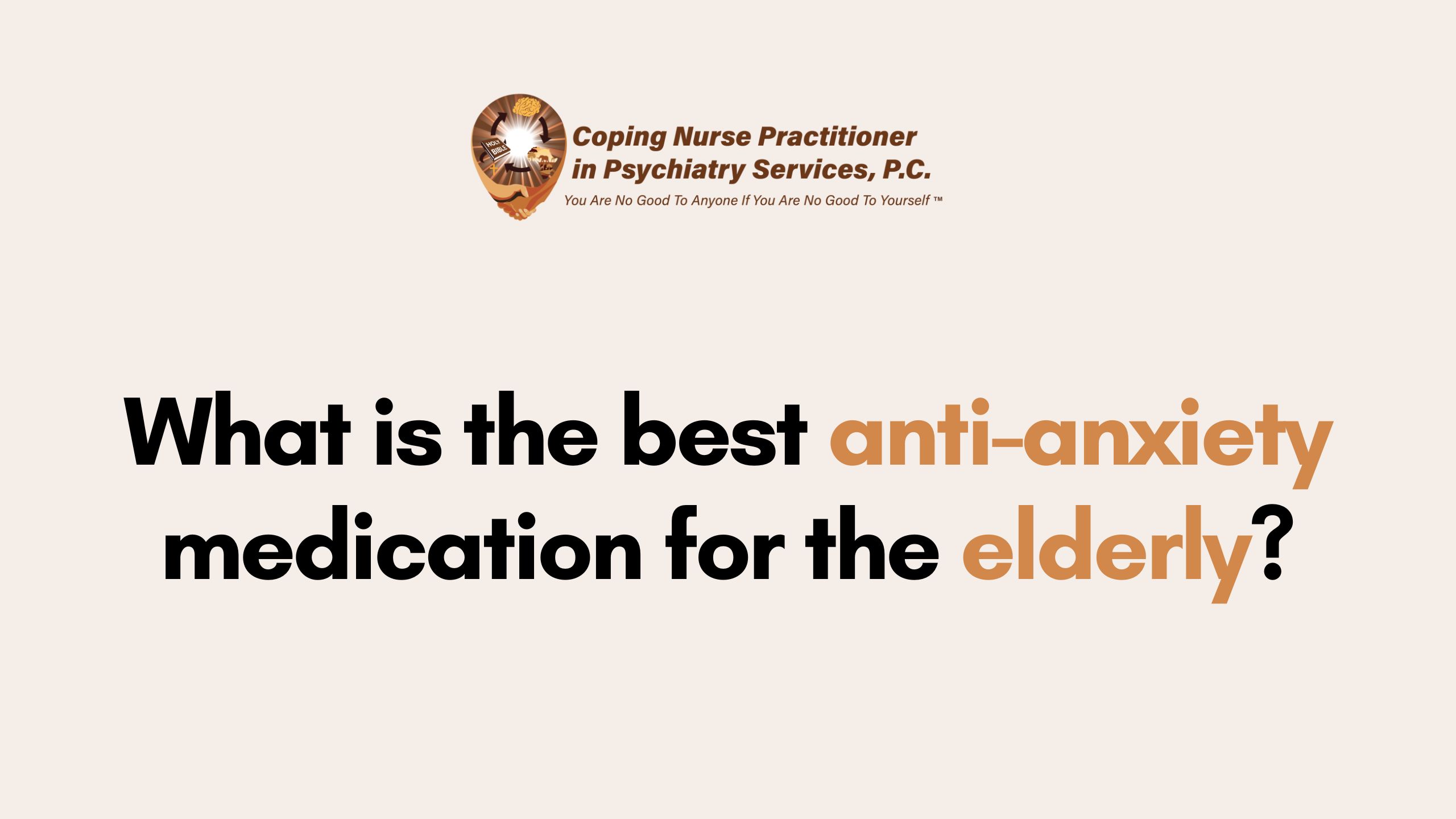Among the elderly, anxiety is a prevalent yet sometimes disregarded problem. A number of mental and physical changes that accompany aging, such as health issues, the death of a loved one, and a greater sense of loneliness, can exacerbate anxiety. To guarantee a high quality of life, the appropriate treatment must be found. Effective anxiety management occasionally requires the use of drugs, even though treatment and lifestyle modifications are essential. However, selecting the best anti-anxiety medicine for the elderly requires careful thought because of age-related changes in metabolism and greater sensitivity to pharmaceuticals.
What is Anxiety in the Elderly?
Anxiety disorders in older adults often manifest differently than in younger individuals. Common types of anxiety seen in seniors include:
- Generalized Anxiety Disorder (GAD): Persistent and excessive worry about everyday matters.
- Panic Disorder: Sudden episodes of intense fear accompanied by physical symptoms like a racing heart and shortness of breath.
- Social Anxiety Disorder: Fear of being judged or embarrassed in social situations.
- Phobias: Irrational fears of specific situations or objects.
- Post-Traumatic Stress Disorder (PTSD): Anxiety stemming from past traumatic events.
The symptoms of anxiety in seniors may be mistaken for other health conditions, making proper diagnosis essential. Symptoms may include restlessness, fatigue, sleep disturbances, muscle tension, and irritability.
What are the Considerations for Choosing Anti-Anxiety Medications in Seniors?
The elderly are more susceptible to side effects from medications due to changes in drug metabolism, kidney and liver function, and increased sensitivity to certain drugs. When prescribing anti-anxiety medicines for older adults, healthcare providers consider factors such as:
- Risk of sedation and falls: Many anxiety medications cause drowsiness, increasing the risk of falls and fractures.
- Drug interactions: Seniors often take multiple medications, leading to potential interactions.
- Cognitive effects: Some drugs can contribute to confusion or memory problems.
- Addiction potential: Certain medications have a higher risk of dependence, which should be avoided in older adults.
What are the Best Anti-Anxiety Medications for the Elderly?
Selective Serotonin Reuptake Inhibitors (SSRIs)
SSRIs are considered the first-line treatment for stress in older adults due to their effectiveness and relatively mild side effect profile. Common SSRIs prescribed for seniors include:
- Sertraline (Zoloft)
- Escitalopram (Lexapro)
- Citalopram (Celexa)
- Paroxetine (Paxil) – Used with caution due to higher risk of cognitive side effects
Benefits of SSRIs
- Less sedating than other anti-anxiety medications
- Lower risk of dependence
- Generally well-tolerated by seniors
Potential Side Effects of SSRIs
- Nausea
- Insomnia or drowsiness
- Increased fall risk (though lower than benzodiazepines)
- Hyponatremia (low sodium levels, particularly in elderly women)
Serotonin-Norepinephrine Reuptake Inhibitors (SNRIs)
SNRIs are another good option for elderly patients, especially if they also experience symptoms of depression. Common SNRIs include:
- Duloxetine (Cymbalta)
- Venlafaxine (Effexor XR)
Benefits of SNRIs
- Effective for both anxiety and chronic pain, which is common in seniors
- Lower risk of sedation compared to benzodiazepines
Potential Side Effects of SNRIs
- Increased blood pressure
- Nausea
- Dry mouth
- Sleep disturbances
Buspirone (Buspar)
Buspirone is a non-benzodiazepine anxiolytic that is well-suited for elderly individuals because it does not cause sedation, memory impairment, or dependence.
Benefits of Buspar
- Non-sedating
- Low risk of dependence
- Few drug interactions
Potential Side Effects of Buspar
- Dizziness
- Nausea
- Headaches
Benzodiazepines (Used with Caution)
Benzodiazepines are effective for short-term relief of severe anxiety. Still, they are generally not recommended for long-term use in the elderly due to their sedative effects, risk of dependence, and increased fall risk. If absolutely necessary, the safest options include:
- Lorazepam (Ativan) – Short-acting, less risk of accumulation
- Oxazepam (Serax) – Short-acting, minimal drug interactions
Risks of Benzodiazepines
- Increased risk of falls and fractures
- Cognitive impairment
- Dependence and withdrawal symptoms
Hydroxyzine (Vistaril)
Hydroxyzine is an antihistamine with anti-anxiety properties. It is sometimes used as an alternative to benzodiazepines.
Benefits of Hydroxyzine
- Non-habit-forming
- Effective for short-term relief of anxiety
- Potential Side Effects:
- Drowsiness
- Dry mouth
- Dizziness
Non-Pharmacological Approaches to Anxiety Management
Medication is not always the best or only solution for anxiety in the elderly. Non-drug approaches can be highly effective and may reduce the need for medications. These include:
- Cognitive-behavioral therapy (CBT)
CBT is an evidence-based therapy that assists individuals in identifying and shifting negative thought patterns contributing to anxiety.
- Mindfulness and Relaxation Techniques
Meditation, deep breathing exercises, and progressive muscle relaxation can help reduce stress and anxiety levels.
- Regular Physical Activity
Exercise releases endorphins, which are natural mood enhancers. Walking, yoga, and tai chi can be beneficial for seniors.
- Social Engagement
Encouraging participation in social activities, volunteer work, or support groups can minimize feelings of loneliness and anxiety.
- Diet and Nutrition
A healthy diet rich in omega-3 fatty acids, magnesium, and vitamin B12 can support brain function and reduce anxiety symptoms.
- Adequate Sleep
Addressing sleep issues can significantly impact anxiety levels. Establishing a consistent sleep schedule and limiting caffeine intake in the evening can help.
Conclusion
Anxiety in the elderly is a serious issue that requires careful management. Medicines like SSRIs, SNRIs, and Buspirone are preferred due to their lower risk profiles, while benzodiazepines should be used cautiously and short-term. Treatment should be individualized, taking into account the senior’s overall health, lifestyle, culture, beliefs and preferences. In addition, medications have slower metabolism, absorption and excretion with aging so at times it may pose a narrow therapeutic safety margin. Visiting a healthcare provider is essential for safe and effective anxiety management.

Leave a Reply